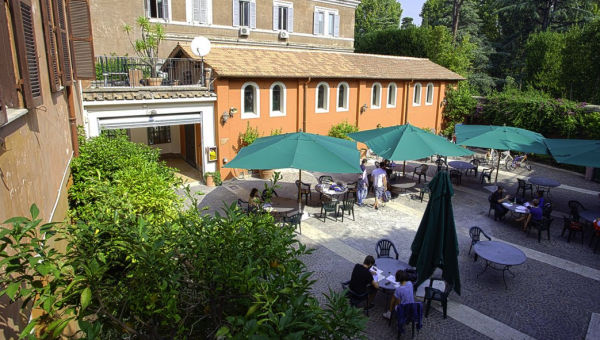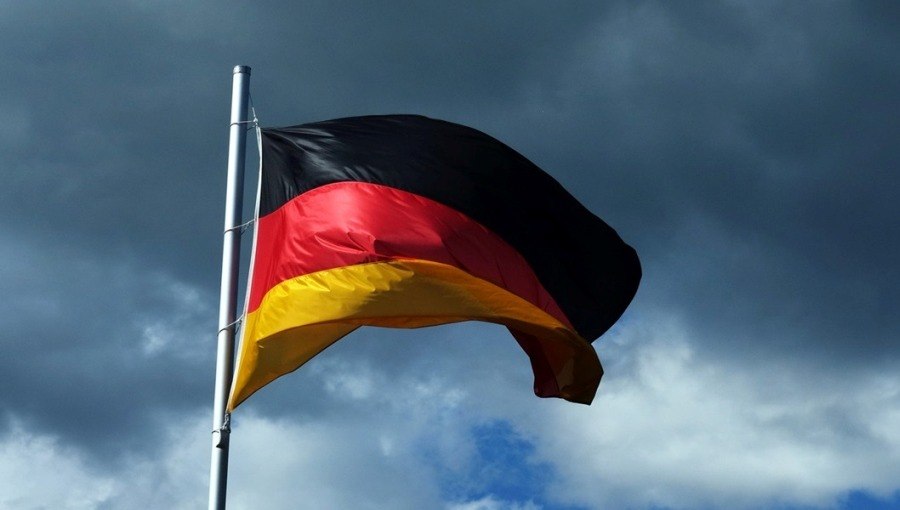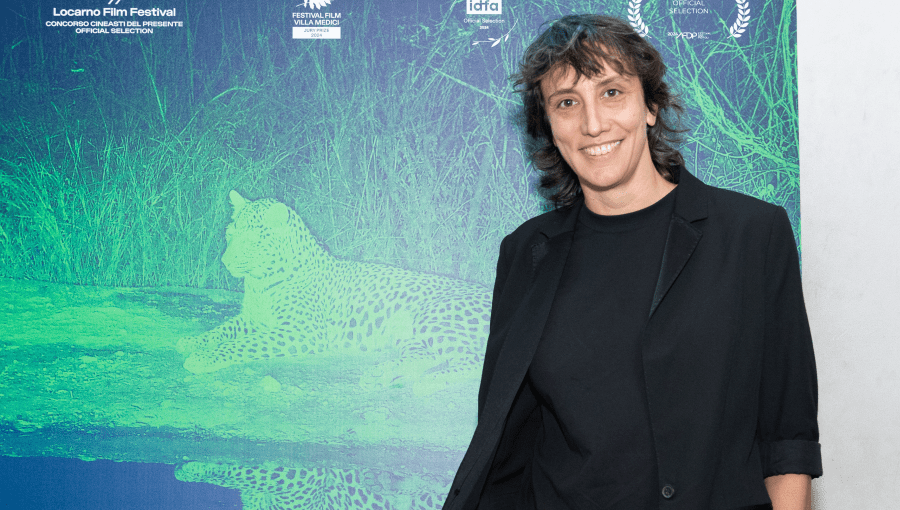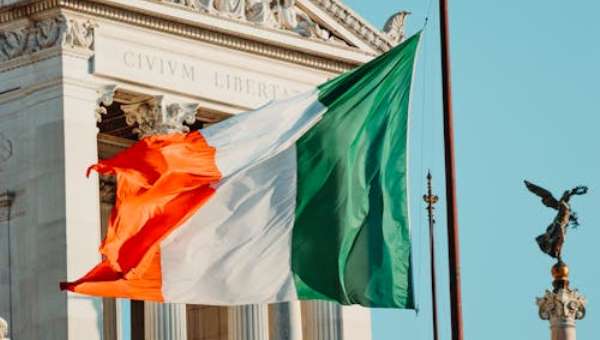JCU Department of Communication Hosts Video Vortex Event
The JCU Department of Communications and the Office of the President held a virtual event called “Video Vortex #13:- Play, Pause and Reset” on May 27, 2021. The event was organized in collaboration with Video Vortex, a network of artists, activists, coders, curators, critics, and researchers founded in 2007 by the Amsterdam Institute of Network Cultures.
The Video Vortex Network deals with facets of both politics and aesthetics of online video. This hybrid event, held simultaneously in Rome, Amsterdam, and Ankara, was the 13th meeting organized by the Video Vortex Network. Professors from across the world who are experts in the field of digital media culture, as well as a student from JCU participated in the event.

Lemon Tree Courtyard in Guarini Campus, John Cabot University
The event was hosted by Comm•e, JCU’s Communication Department robot. Due to COVID-19 safety measures, many of the speakers participated through a socially distanced interview format with Comm•e, while the other speakers presented their lectures via Zoom. The in-person interviews took place in the Lemon Tree courtyard of John Cabot University’s Guarini Campus, and the event was live-streamed on JCUTV, the University’s official channel.
Contributors
The presenters were Gabriele Marino, Natalia Stanusch, Marco G. Ferrari, Patrick Lichty, Aras Ozgun, Andreas Treske, and Geert Lovink. Gabriele Marino is a semiologist from the University of Turin, and his presentation was a philosophical account on the phenomena of Zoom bombing, which is defined as an online trolling practice typically intended for comedic effect. Natalia Stanusch is a Communications and Art History double major at JCU, and she discussed the connection between memes and Dada art. Marco G. Ferrari is a professor of Communications at JCU and a filmmaker. He presented the concept of filmmaking as a projection of ideas and discussed digital artists’ connection with machines. Patrick Lichty is an artist, activist, and educator on conceptual media, and he explained his research on digital culture and the media’s ability to manipulate the perceived reality of time. Geert Lovink, theorist of network culture, facilitated Patrick Lichty’s presentation. Aras Ozgun, a media artist and professor at the New School University in New York City, illustrated his research on algorithmic culture within media. Andreas Treske, professor of Communications at Bilkent University in Ankara, Turkey, helped coordinate Ozgun’s presentation online.
The event provided fascinating insights on art, digital culture, and the ever-increasing importance of media. Not only was this Video Vortex presentation full of captivating content, Comm•e, the robot, facilitated conversation through it all and entertained the audience with his clever wit and humor. As the primary organizer, Professor Donatella Della Ratta described the event as “a great opportunity to learn from artists, activists, and scholars about the evolution of online video.”





